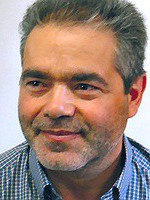abstract
The present study aimed to test, in vitro, the antimicrobial activity against Candida albicans and Streptococcus mutans and the surface roughness of a 3D-printed polymethylmethacrylate dental resin enhanced with graphene. A 3D-printed polymethylmethacrylate dental resin was reinforced with four different concentrations of graphene: 0.01, 0.1, 0.25 and 0.5 wt%. Neat resin was used as a control. The specimens were printed in a liquid crystal display printer. Disc specimens were used in antimicrobial evaluation, and bar-shaped specimens were used to measure surface roughness. The study of antimicrobial activity included the inhibition of the growth of C. albicans and S. mutans and their adhesion to the resin's surface. Surface roughness increased with the increase in the graphene concentration. The growth inhibition of C. albicans was observed in the different concentrations of graphene after 24 h, with no recovery after 48 h. The specimens doped with graphene were capable of inactivating S. mutans after 48 h. The surface-adhesion studies showed that the density of microbial biofilms decreases in the case of specimens doped with graphene. Graphene, despite increasing the resin's surface roughness, was effective in inhibiting the growth and the adhesion to the resin's surface of the main inducers of prosthetic stomatitis.
keywords
DENTURE-RELATED STOMATITIS; SURFACE-ROUGHNESS; CANDIDA-ALBICANS; OXIDE; PMMA; ETIOLOGY
subject category
Biochemistry & Molecular Biology; Research & Experimental Medicine; Pharmacology & Pharmacy
authors
Salgado, H; Gomes, ATPC; Duarte, AS; Ferreira, JMF; Fernandes, C; Figueiral, MH; Mesquita, P
our authors
Projects
CICECO - Aveiro Institute of Materials (UIDB/50011/2020)
CICECO - Aveiro Institute of Materials (UIDP/50011/2020)
Associated Laboratory CICECO-Aveiro Institute of Materials (LA/P/0006/2020)
acknowledgements
This work was developed within the scope of the projects of the CIIS-UCP, Viseu and FCT Ref. UIDB/04279/2020 as well as within the scope of the project CICECO-Aveiro Institute of Materials, UIDB/50011/2020, UIDP/50011/2020 & LA/P/0006/2020, and it was financed by national funds through the FCT/MCTES (PIDDAC). Thanks are also due to FCT and UCP for the CEEC institutional financing of Ana T.P.C. Gomes (CEECINST/00137/2018/CP1520/CT0022) and Ana Sofia Duarte (CEECINST/00137/2018/CP1520/CT0013). Carlos Fernandes is grateful for the funding through LAETA, Portugal, in the framework of project UID/50022/2020.


